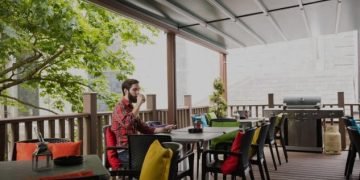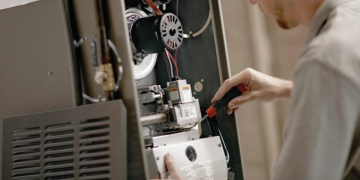Last Updated on August 31, 2022 by Fakhar Zaman
When it comes to finding the right property management software, there are several core features that you should make sure aren’t missing. These include tenant screening, online rent collection, lease management, tenant communication, and maintenance management. Without these, you could have a major hole that isn’t being filled when managing your real estate business.
With that said, there are some additional features you should look out for when deciding which property management software is right for you. These features often separate the good platforms from the great ones.
Here are five valuable secondary features that you should look for in property management software:
Mobile App
Nowadays, a lot of the work you’ll get done as a landlord or property manager will be done on the go. You can’t always be at your home or office and lugging around a computer that needs to be connected to the internet is an inconvenience. Therefore, a mobile app makes things a lot easier on your end. You’d be able to easily send leases, collect rent, and communicate with your tenants whenever you have your phone on you (which, let’s be honest, is almost always).
Not all of your tenants will be tech savvy, but the vast majority of people these days at least have a cell phone. A mobile app makes the responsibilities on your tenants’ end easier for them to access.
Renter’s Insurance
Renter’s insurance doesn’t just benefit tenants and their assets — it’s also a great way for you to shield yourself from potential liability. If a tenant damages your property, for example, their renter’s insurance could cover the cost, which would save you on insurance deductibles and keeps your premiums lower.
As a landlord, keeping track of which of your tenants have renter’s insurance can be a headache, but great property management software does this for you. If a tenant has an existing policy, they should be able to easily upload a copy to the platform. And if they don’t, many platforms provide an option for tenants to buy renter’s insurance within the application.
Automated Late Fees
Enforcing late fees is never any fun. It usually requires tracking down the tenant and having an uncomfortable conversation, which can be time-consuming and awkward. Nevertheless, it’s a necessary part of the business. And the good news is that property management software can do most of the hard work for you.
With automated late fees, all you have to do is set an amount and grace period as outlined in your lease agreement, and the software will automatically trigger the fees when your tenant doesn’t pay on time. Your tenants will also receive automated reminders when rent is past due, holding them accountable without any room for excuses.
Multi-User Management
This is a really helpful tool when you have multiple people working in your real estate business. This feature allows you to add multiple users to your property management software account and give them limited access to their responsibilities based on their roles. Property managers, leasing agents, accountants, maintenance personnel, and others would all be able to do their respective jobs on the same platform.
This is a great way to keep your employees organized, engaged, and on task. It’ll also allow you to track all your business’s progress in a single, centralized location.
Responsive Support
While your property management software should be easy to use, you never know when you’ll run into an unexpected issue. When this happens, the last thing you want is delayed assistance or a helpline comprised of unhelpful automated messages.
Quick, responsive, and helpful customer support is extremely valuable to your business. It’ll save you time and money in the long run. When you’re browsing property management software options, you should consider platforms that have a dedicated account representative, live chat, or a help center. This will ensure that you can quickly resolve any issues you or your tenants might have.
Conclusion
Core features are the “must-haves” that your property management software should possess in order to cover all the necessary ground. It’s important to also consider any secondary features the software might provide because these can save you even more time and money. Do extensive research on each property management software platform and pick the one that has all the features you and your business need.
For more reading content visit here.




































































